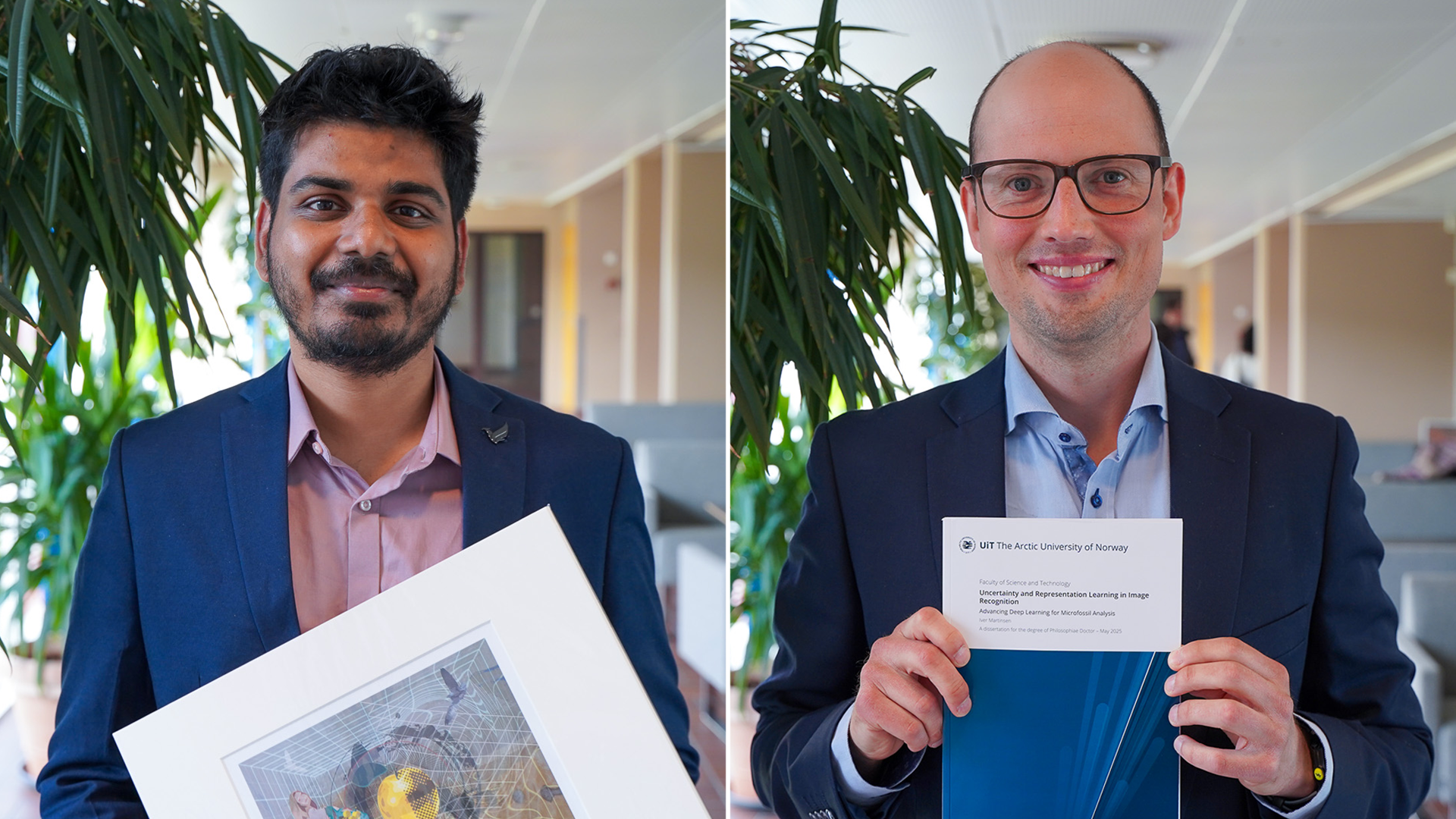
From the left: Durgesh Kumar Singh and Iver Martinsen after successfully defending their PhD theses
We happily welcome Veronica Lachi and Qing Liu as new Associate Professors at SFI Visual Intelligence.
Artur Radzivil is a PhD Research Fellow at Vilnius Gediminas Technical University. He visited Visual Intelligence in Oslo from September to November 2025.
Congratulations to Marius Aasan, who successfully defended his PhD thesis at the University of Oslo on February 10th.
We had the pleasure of talking to UiT students about the career opportunities at SFI Visual Intelligence and UiT at TEKdagen 2026.
Centre Director Robert Jenssen met with Sigrun Aasland, Norwegian Minister of Research and Higher Education, alongside UiT and Aker Nscale representatives to give an update on Aker Nscale's AI Giga Factory in Narvik, Norway.
Zheming Xu is a PhD Research Fellow at Beijing Jiaotong University. She visited Visual Intelligence in Tromsø from September 2025 to January 2026.
Få kvinner søker seg til fag innenfor kunstig intelligens. Det kan skape blindsoner, mener ekspert (Norwegian news story in NRK.no).
Visual Intelligence was represented by Centre Director Robert Jenssen, Associate Professor Kristoffer Wickstrøm, and VI Alumna Sara Björk at the Arctic Frontiers side session "How can AI and satellite collaboration strengthen Arctic resilience?".
Petter Tømmeraas, Director of Data Center Services at Aker Nscale, visited SFI Visual Intelligence to learn more about our research projects and AI startups established by former UiT students.
We happily welcome Keyne Oei and Boye Sjo as new PhD Research Fellows at SFI Visual Intelligence in Tromsø and Oslo respectively.
Congratulations to Børge Solli Andreassen, who successfully defended his PhD thesis at the University of Oslo on December 18th 2025.
Attracting 280 international AI researchers, the Northern Lights Deep Learning Conference (NLDL) 2026 was successfully organized from January 5th to 9th 2026 at UiT The Arctic University of Norway in Tromsø, Norway.
Visual Intelligence hosted a special NLDL 2026 mentoring session for young researchers with Professor Mihaela van der Schaar – a globally renowned AI researcher and expert
Centre Director and NLDL General Chair Robert Jenssen was interviewed by NRK about this year's Northern Lights Deep Learning Conference.
270 KI-eksperter fra nært og fjernt møtes ved UiT for å dele siste forskningsnytt. Et av formålene er å styrke internasjonale bånd og samarbeid på tvers av det globale KI-miljøet (Norwegian news article on uit.no)
Med ferske millioner på konto skal Senter for pasientnær kunstig intelligens (SPKI) ved UNN bidra i et stort nasjonalt KI-prosjekt de neste fire årene (News article on unn.no)
We happily welcome Zijun Sun as a new Doctoral Research Fellow at SFI Visual Intelligence in Tromsø, Norway.
The Visual Intelligence Management Team, Robert Jenssen, Line Eikvil, Anne Solberg, and Inger Solheim, wishes everyone a happy holiday season and new year!
Several of our researchers represented SFI Visual Intelligence at EurIPS 2025 – the NeurIPS-endorsed European AI conference.
Congratulations to Senior Research Scientist Anders Waldeland, who was awarded the Digital Trailblazer Award 2025 at the Dig X Subsurface conference in Oslo, Norway.